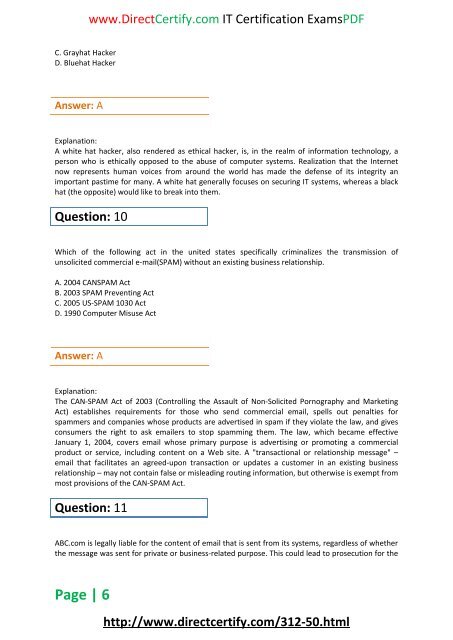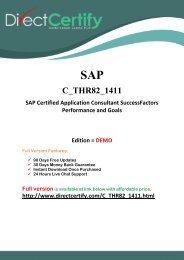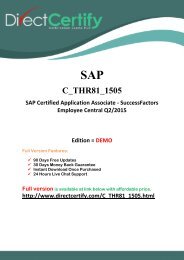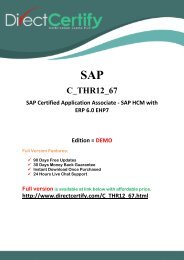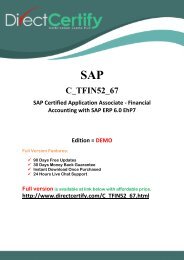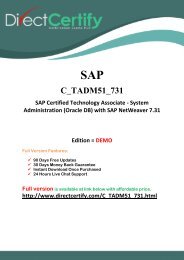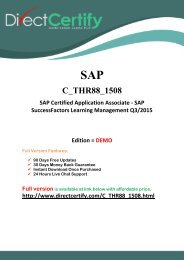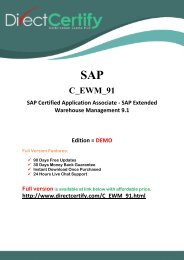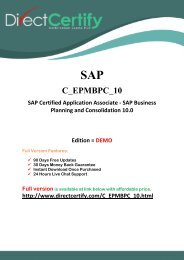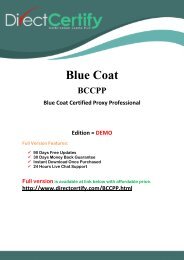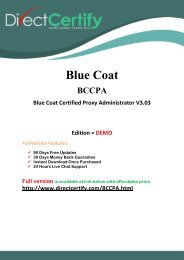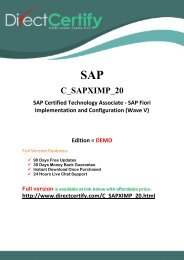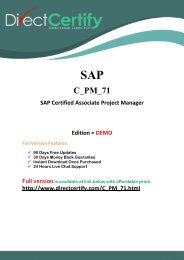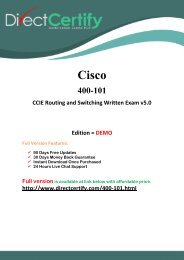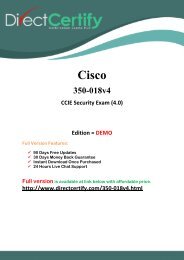DirectCertify 312-50 Latest Exam Brain Dumps
Get your future secure with our training kits of PDF questions answers which are verified and authorized by the experts and professionals regarding 312-50 Exam. For more info please visit here: http://www.directcertify.com/312-50.html
Get your future secure with our training kits of PDF questions answers which are verified and authorized by the experts and professionals regarding 312-50 Exam. For more info please visit here: http://www.directcertify.com/312-50.html
Create successful ePaper yourself
Turn your PDF publications into a flip-book with our unique Google optimized e-Paper software.
www.<strong>DirectCertify</strong>.com IT Certification <strong>Exam</strong>sPDF<br />
C. Grayhat Hacker<br />
D. Bluehat Hacker<br />
Answer: A<br />
Explanation:<br />
A white hat hacker, also rendered as ethical hacker, is, in the realm of information technology, a<br />
person who is ethically opposed to the abuse of computer systems. Realization that the Internet<br />
now represents human voices from around the world has made the defense of its integrity an<br />
important pastime for many. A white hat generally focuses on securing IT systems, whereas a black<br />
hat (the opposite) would like to break into them.<br />
Question: 10<br />
Which of the following act in the united states specifically criminalizes the transmission of<br />
unsolicited commercial e-mail(SPAM) without an existing business relationship.<br />
A. 2004 CANSPAM Act<br />
B. 2003 SPAM Preventing Act<br />
C. 2005 US-SPAM 1030 Act<br />
D. 1990 Computer Misuse Act<br />
Answer: A<br />
Explanation:<br />
The CAN-SPAM Act of 2003 (Controlling the Assault of Non-Solicited Pornography and Marketing<br />
Act) establishes requirements for those who send commercial email, spells out penalties for<br />
spammers and companies whose products are advertised in spam if they violate the law, and gives<br />
consumers the right to ask emailers to stop spamming them. The law, which became effective<br />
January 1, 2004, covers email whose primary purpose is advertising or promoting a commercial<br />
product or service, including content on a Web site. A "transactional or relationship message" –<br />
email that facilitates an agreed-upon transaction or updates a customer in an existing business<br />
relationship – may not contain false or misleading routing information, but otherwise is exempt from<br />
most provisions of the CAN-SPAM Act.<br />
Question: 11<br />
ABC.com is legally liable for the content of email that is sent from its systems, regardless of whether<br />
the message was sent for private or business-related purpose. This could lead to prosecution for the<br />
Page | 6<br />
http://www.directcertify.com/<strong>312</strong>-<strong>50</strong>.html


